I was never a Bowie fan (Sacrilege, I know). I didn’t dislike the guy; it’s just that nothing about his involvement in the worlds of high fashion or movies or synth-pop endeared him to me, and the latter was his primary vehicle when I first encountered him in the 80’s.
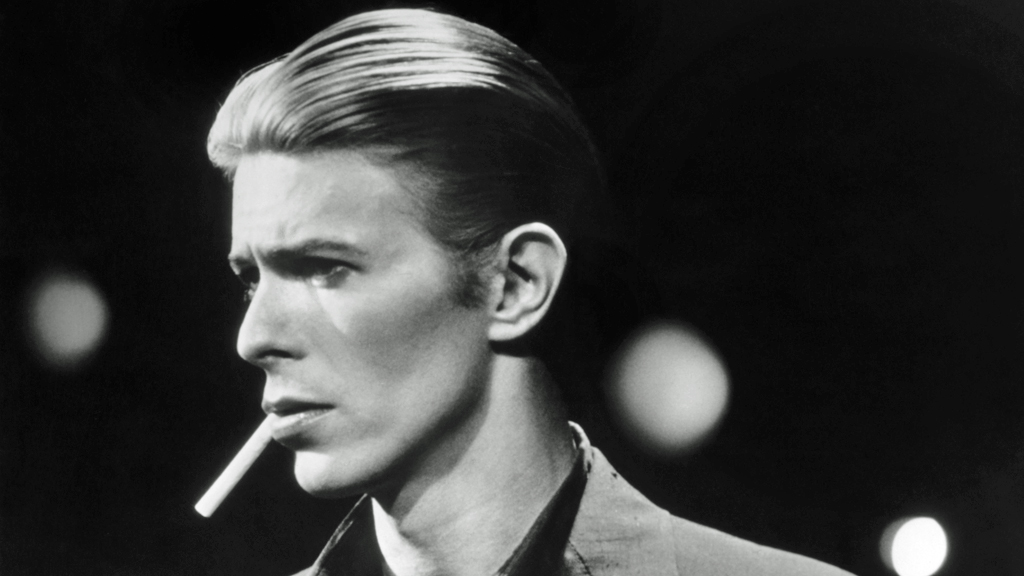
1976: David Bowie poses for an RCA publicity shot in 1976. (Photo by Michael Ochs Archives/Getty Images)
Nobody would argue, he cut a striking figure, but to me it was striking in a disconcerting way. He was tall and skinny; I’d say emaciated even, except for the fact that rail-thin was in at the time. The face proceeding from the ostrich-like neck was expectedly gaunt and angular, prism-like, so that every turn brought another dimension into view seemingly disconnected from the rest. When he smiled his eyelids thinned into slits and lips retracted revealing a row of long, white teeth, with offensive potential. He looked reptilian. Add to this ensemble of characteristics a case of heterochromia Iridum (difference in coloration of the iris) and you had one very peculiar looking human.
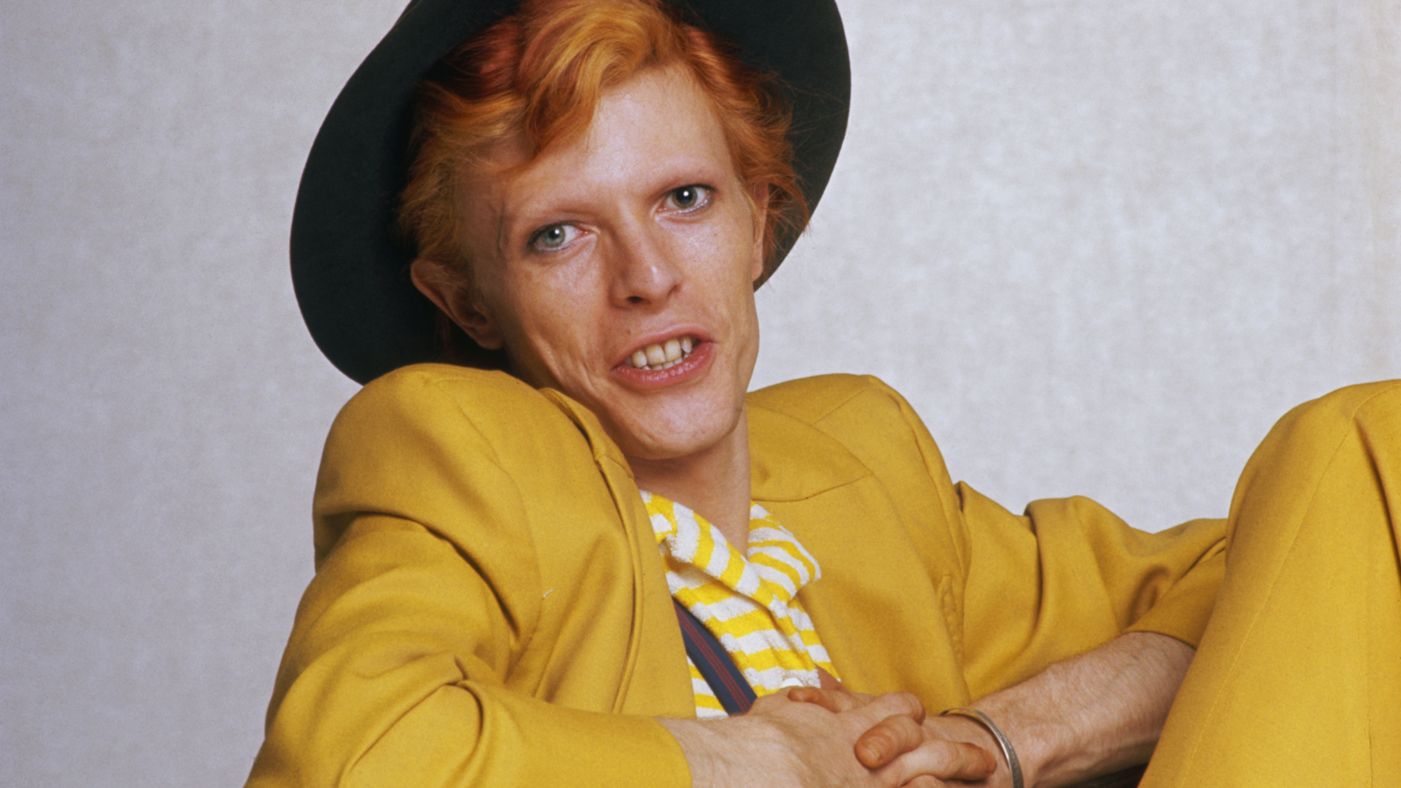
Musically I wasn’t a fan either. I don’t blame this on anything substantial like lack of talent or lyrical depth. I was just too young to view his music within any kind of context. I was, in fact, just newly opening my eyes to the florescent sights and sounds of 80’s pop culture; the effects of which left me woozy and seeing sunspots and certain only that popular music had this low-fi, 8-bit, artificial quality to it, like it was trying hard to sound futuristic and failing comically.
Any mention of Bowie on the News usually featured a montage of his various looks throughout the years, accompanied by a brief, yet assorted, sampling of his music. Ziggy Stardust being his most colorful persona, photos of him as this otherworldly character were prominently featured, as were photos where the talents of the make-up artists and designers were as much on display as Bowie himself. Again none of this inspired admiration from me. I’d go as far as to say that the androgyny and effeminate posturing made me a little uncomfortable, as uncomfortable as a prepubescent yet heterosexual kid can be.
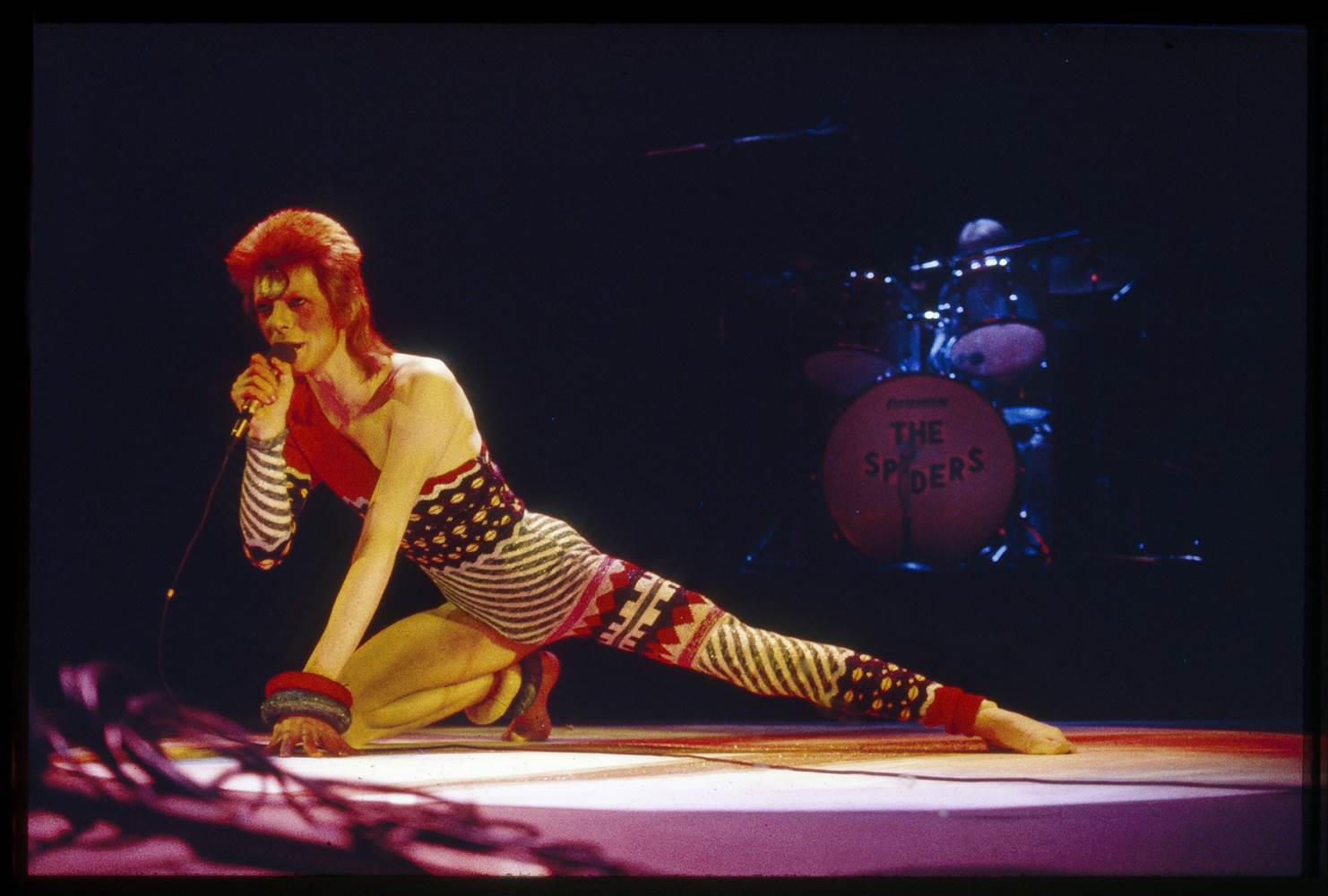
The effect of Bowie’s fashion sense and music on my formative years was complete. As I got older and immersed myself in all things alternative and underground, I had little interest in the man, and even less faith that a closer examination of his discography would reveal anything good. When DJ’s in dive bars on the Lower East Side would throw in a Bowie song like “Rebel, Rebel” into their playlist of classic punk standards, I would write it off as a lucky accident on Bowie’s part, or maybe a collaboration he’d done with another artist or songwriter. Certainly a man who reveled as much as Bowie did in blazers with padded shoulders and dancing in the streets with Jagger was incapable of intentionally putting out good rock tunes, whatever the era.
Unraveling the skein of New York City Punk Rock led me to the New York Dolls, and – surprise, surprise – the originators of the cross-dressing glitter scene. But they played Rock’n’Roll and behaved like louts, so all was immediately forgiven. Wanting to know as much as I could about this era, I picked up Legs Mcneil’s Please Kill Me: The Uncensored Oral History of Punk. And much to my surprise found that David Bowie, by way of Iggy Pop, had been one of the first from across the pond to embrace this nascent scene. He’d come over looking for something new and edgy. Drawing from the aesthetics of the Dolls and the Stooges and collaborating with Iggy Pop, he’d found it. Bowie even admits that he chose the name Ziggy, partially because it sounded like Iggy.
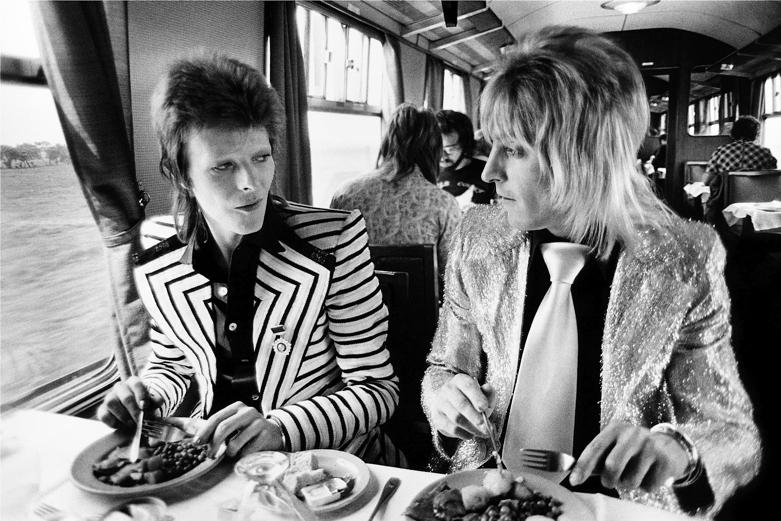
I suddenly couldn’t help but feel a certain level of respect for Bowie. Regardless of my personal opinion on the little that I knew of his work, here was a guy who had been first in line to champion bands who would one day be recognized as pioneers. Already a star in his own right, he never considered any of this beneath him. He saw it as fresh and vital. He was able to because he was open to new ideas and sounds – a true sign of a good artist, and person.
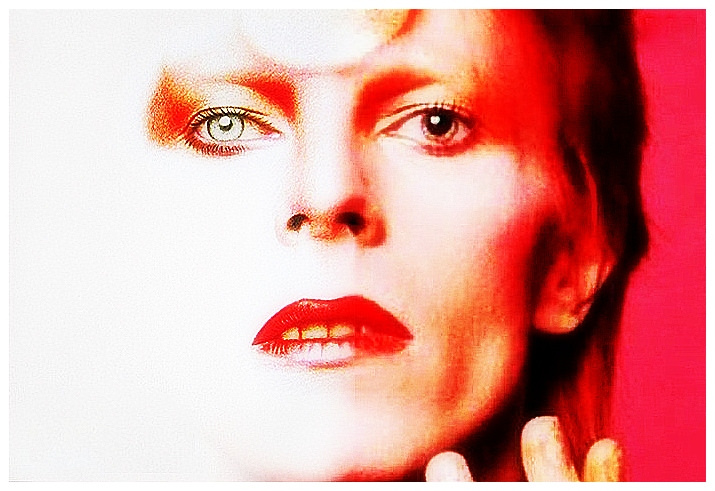
When I reflected on how much I actually knew about Bowie’s music, I remembered a song that had always stood out because of who had covered it, Nirvana. When Nirvana played their Unplugged set in 1993, they did something unprecedented: they played a set in which nearly half the songs were covers. Lead Belly, the Vaselines, the Meat Puppets, and David Bowie. And while their take on Lead Belly’s “Where Did You Sleep Last Night” was definitely the highlight of the set, their version of “The Man Who Sold the World” was haunting. And truth be told, it wasn’t so much their version but the song itself, the inscrutable lyrics and its enigmatic title. It wasn’t until David Bowie lost his bout with cancer, however, that I looked up the original. I slowly worked my way back through his career, revisiting songs I had eschewed during the 80’s, like “Changes,” and realizing that some of his songs had been favorites all along, like “Under Pressure.”
This wouldn’t be the first time where a musician’s death brought renewed attention to their work. Sometimes the tragedy brings the musician within the radar of a new generation of listeners and other times, like in my case, it is the nudge people need to make them stop idling at the periphery and dive in. My mistake was assuming an excess of smoke and mirrors meant there was no substance beneath it. That isn’t always true, and in David Bowie’s case, it was absolutely false. Proof of this is simply the reach, the breadth of the man. When you realize that Bowie’s influence can’t be escaped thanks to his collaborations with other musicians, his ability to transcend genres, or the sampled beats from his songs that live on in countless hip-hop songs, you begin to understand the kind of legacy Bowie leaves behind. It is not one that will soon be equaled or forgotten.

